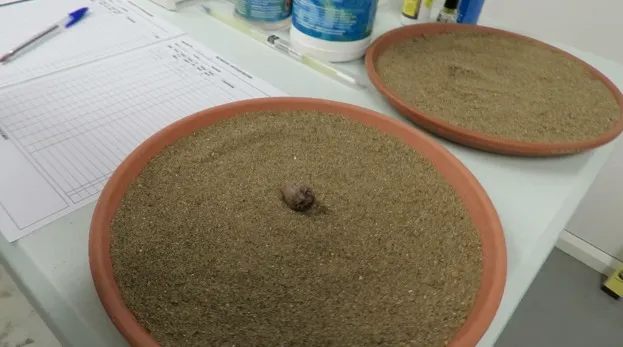Seven eggs have been laid so far by two spoon-billed sandpipers at the Wildfowl & Wetlands Trust (WWT) in Slimbridge, Gloucestershire, UK.
The flock was established in 2011 as a back-up in case conservationists run out of time to save the wild population from extinction and is the only one in the world.
For the past two years staff at the wetlands reserve have been doing everything they can to encourage the birds to breed.
WWT head of conservation breeding Nigel Jarrett said, “When we found the first egg last week we almost couldn’t believe it. We’ve had two mums busy laying and the significance of it is only just starting to hit home.”

Only around 200 breeding pairs are left on the Asia Pacific coast, following declines of up to 25 per cent each year.
“We’re on the road to breeding spoonie chicks in captivity, which is really the ultimate insurance policy for the species in the wild,” said Jarrett.
In the wild spoon-billed sandpipers migrate from tropical Asia to Arctic Russia to breed and experience huge differences in temperature, habitats and daylight along the way.
In Gloucestershire, with the help of special lightbulbs, timer switches, a lot of sand and netting, staff have tried to recreate these conditions to get the birds’ hormones surging.

Egg ready for incubator © WWT
Each spoon-billed sandpiper usually lays four tiny eggs in each clutch.
They weigh 32g in total, more than the mother’s entire bodyweight, and they take her almost a week to lay.
WWT will have to wait for the embryos to develop before they can find out how many of the eggs might be viable.
Over the past five years the wild population has started to recover thanks to conservation organisations across the world, including the Spoon-billed Sandpiper Task Force.
Establishing the Slimbridge flock was just the first step. Staff and volunteer ornithologists throughout the birds’ range have also been monitoring the birds and identifying and countering the threats they face in the wild.
